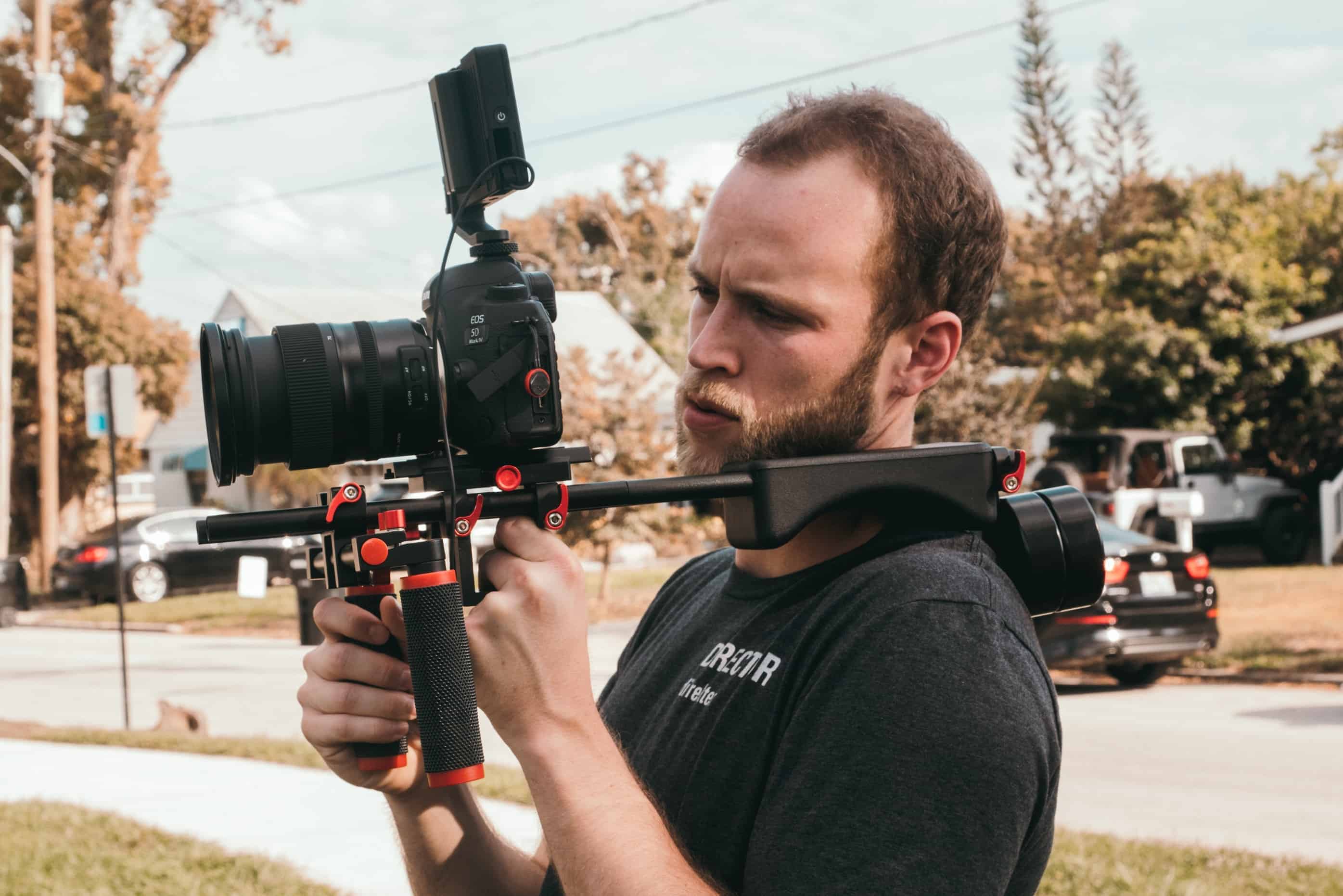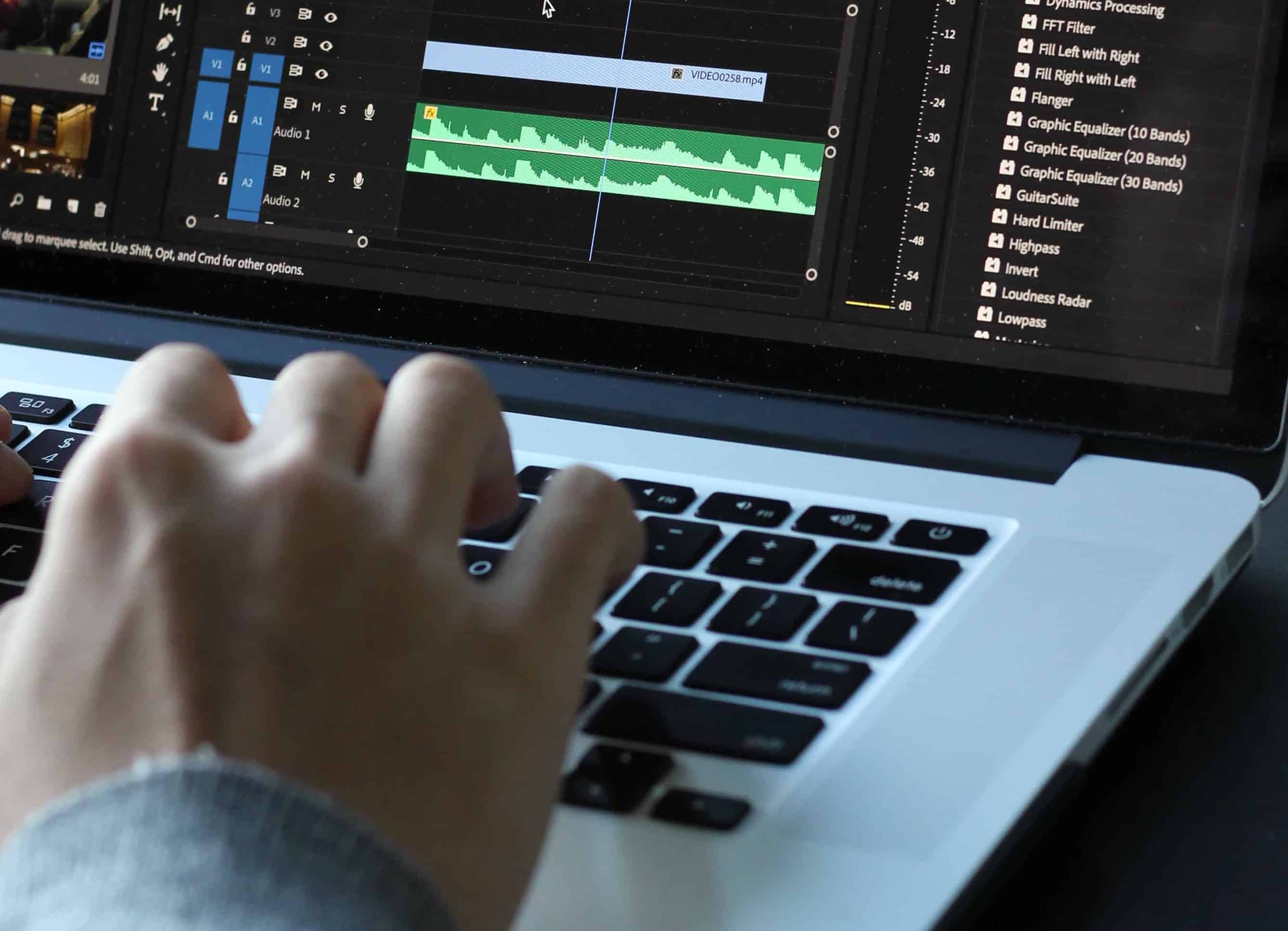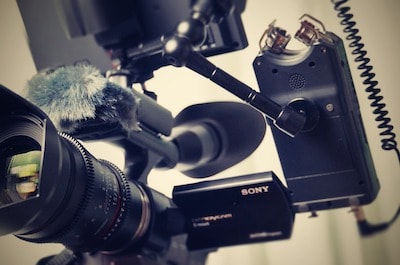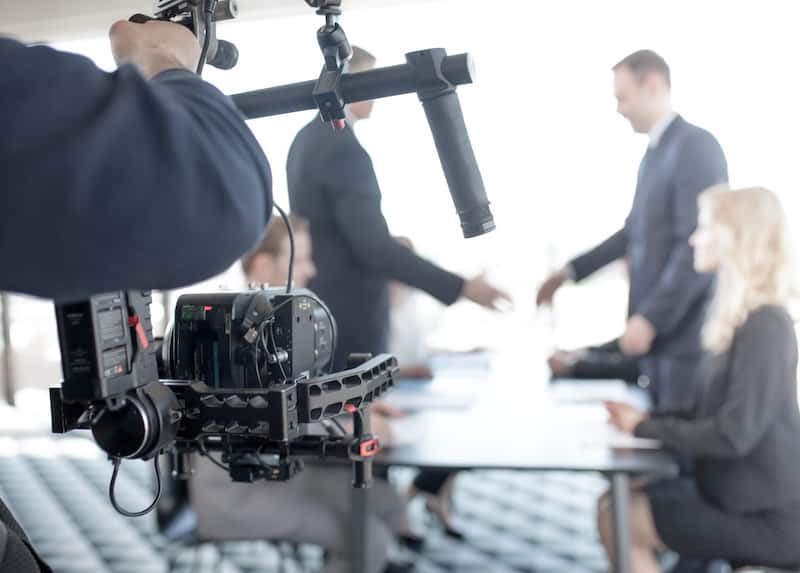
17 Sep How to Film an Examination Under Oath
As a professional videographer, you may be asked to film and examination under oath, and you’re in the right place. Most insurance companies require the insured to appear for an examination under oath as a duty after loss. This typically happens at the end of an investigation as one of the final steps. While under oath, the examination will be transcribed by a court reporter and videotaped by a videographer. Every question that is answered and asked will be apart of the record.
How do you film an examination under oath? To film an examination under oath, you will need to carefully capture the individual who is answering the questions on both audio and video. Once the meeting is complete, you will compile this information which will be provided to each of the participants.
Keep reading to learn more about capturing an examination under oath as a legal videographer.
Filming an Examination Under Oath
In many ways, filming an examination under oath is identical to filming a deposition. As a legal videographer, you will not have to change much, if anything, about the way you capture this important meeting.
What Is a Video Examination?
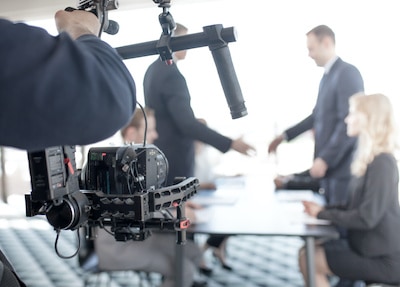 To investigate an insurance claim, most insurance policies require a policyholder to answer questions under oath as well as produce documents and other information pertaining to the case. This process requires the policyholder to answer questions asked by the insurance companies representative.
To investigate an insurance claim, most insurance policies require a policyholder to answer questions under oath as well as produce documents and other information pertaining to the case. This process requires the policyholder to answer questions asked by the insurance companies representative.
Most of the time, the representative is an attorney who the insurance company hired to investigate and provide the insurance company with advice on how to handle the claim. It’s common for the examination to take place at the court reporter or attorney’s office. The examination will be under oath, last at least an hour, will be recorded by a court reporter, and filmed by the examination videographer.
How Does a Video Examination Work?
In most instances, the attorney and videographer will prepare the policyholder to answer the questions and provide their statements. The examination will be recorded and transcribed by the court reporter and videoed by the videographer.
To prevent prejudice to the applicant for benefits during the verification process, the insurer must provide the policyholder with a copy of the audio and video. As well as an affidavit or sworn statement that the audio/video is unredacted and has not been altered.
Examination vs. Deposition?
You might be wondering what the difference is between an examination under oath and a deposition.
They both require a series of different questions that need an honest and accurate answer. However, an examination under oath happens during the investigation process, and deposition under oath occurs if you need to litigate your claim
You can learn more about examination under oath vs. depositions here.
How Long Can I Expect to Be Filming?
An examination under oath will last at least an hour but could take up to a few hours. It’s important to prepare for a few hours of filming, be sure all of your equipment is charged and ready to go.
How to Film an Examination Under Oath
Listed below are the steps you will need to take as you film an examination under oath.
Determine the Goal & Ask for Needs
Why are you there? What information does insurance need? Is there something specific the Corporate Lawyer needs me to film? These are just a few questions that need to be answered to ensure you have a good understanding of the goals of the examination.
Practice Shot & Test Audio
Since this examination is under oath, audio and video must be working properly. Providing time for sound checks and capturing practice shots of the policyholder as well as the attorney only take a few moments and is crucial. It’s the whole reason you’re there, right?
Empty Your SD Cards
Always start the examination with an empty SD card. Doing this will eliminate possible confusion when editing the video. Additionally, it will ensure you have ample space to record the entire examination, regardless of its length.
Provide Instructions
It can be easy to forget that most people have had no experience with microphones, cameras, or any other recording gear. Be sure you provide them with specific instructions on how to speak and act while filming the examination.
Be Patient
Your career is based on filming under oath as a legal videographer; however, for most people, this is their first time being filmed. They might ask questions that seem unnecessary to you, but be patient as it will make the entire process much more pleasant.
Bring Backup Equipment
It’s important that the examination filmed under oath is audible and clear and sometimes things can go wrong! Being a professional legal videographer, you’ve probably invested in some of the highest quality equipment; however, even the best tools fail at times. So always bring your backups!
Pay Attention to Verbal Cues
During the examination, the policyholder or attorney may way to display a piece of evidence or make a motion to something else in the room. It’s important to pay attention to this cue. If you fail to capture something important to the care, it will create an inconsistent and less than ideal video examination.
One thing to note: during an examination the policyholder may use props like model toy cars, maps, and diagrams. Be sure you get any props in the frame of the video!
Follow the Rules
Following the rules for the examination is very important. The attorney assigned to the case should be aware of all the rules surrounding the examination under oath; however, it can be beneficial to have your own knowledge of the matter. Failing to abide by the examination rules and regulations can have serious consequences including fines or possibly even the loss of your business.
What is Needed for a Video Examination?
- Space for the examination to be filmed. A clutter-free background with lots of light is best! Examinations are typically filmed at the attorney’s office which normally works out great.
- Private space where the policyholder is comfortable talking and is accessible for all parties involved.
- You will also need a court reporter- they will transcribe the examination to be synchronized to the video of the examination.
The whole reason this examination is taking place is that the insurance company feels as if there’s a missing piece.
Examination and Insurance
How do examinations under oath help the insurance company? Why is this process necessary? Keep reading to learn more.
Why Does Insurance Need the Examination Under Oath?
Examinations under oath have become fairly common. However, it’s typically only requested by an insurance agency when they feel as if the policyholder has done something wrong or deceives the company.
What Does Insurance Policy Require?
This is important to know. The attorney assigned to the examination will have all of the information the insurance company needs, but make sure you ask if there’s any specific information you need to get on camera.
What Questions Will Be Asked?
You can expect a variety of different questions from the insurance company regarding the case. As well as personal and professional questions, such as:
- Name(s)
- Date of Birth
- Martial status and history
- Identity of children and relatives
- Employment history
Like we talked about above, examinations under oath can last up to a few hours. You’ll be hearing a lot more questions than these!
As a professional videographer, you already know the ropes. But filming an examination under oath might not be something you’re familiar with. Here are a couple of helpful tips to remember before you press record!
Helpful Tips for Filming an Examination Under Oath
- Communicate promptly and clearly.
- Don’t misrepresent anything.
- Give yourself time to prepare.
One last thing, pursue further legal videography education. No matter how long you’ve been in the videography field, it’s important to pursue further education. taking classes at your community college or working with an online educator are a couple of the best ways to stay up to date and ahead of the back in terms of experience!
Good luck and thanks for reading! We hope you find this valuable- don’t forget an extension cord!
You can find more great deposition tips and training here.


